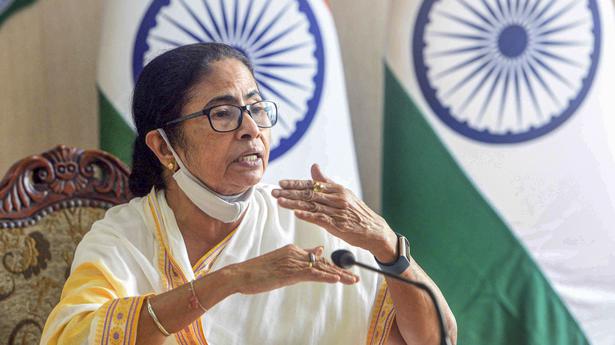
BJP’s attempt to topple Maharashtra govt. unethical: Mamata Banerjee
The Hindu
The West Bengal CM said the saffron party has deliberately chosen to ‘disturb’ the Maharashtra government at a time when the Presidential polls are approaching
Amid the ongoing political crisis in Maharashtra, West Bengal Chief Minister Mamata Banerjee on June 23 flayed the BJP for trying to “topple” the MVA government in that State in an “unethical and unconstitutional” manner.
She said the saffron party has deliberately chosen to “disturb” the Maharashtra government at a time when the Presidential polls are approaching.
“It’s an unfortunate fact that the federal structure has been totally demolished by the BJP-led central government. They are attempting to topple the Maharashtra government in an unethical and unconstitutional manner,” Ms. Banerjee told reporters at the state secretariat.
Describing the situation in Maharashtra as “shocking”, the Trinamool Congress chief said, “We want justice for people, for the electoral mandate and for Uddhav Thackeray (Maharashtra CM).”
In what seems to be an apparent bid to topple the Maha Vikas Aghadi government (MVA) in Maharashtra, dissident legislators of Shiv Sena, which heads the ruling coalition, left for Surat on June 21, where they had camped for the day, before flying to Guwahati in a chartered aircraft.
This is perhaps the first time MLAs from a western state were flown to a northeastern state, following their rebellion against the party leadership.
The exact number of rebel legislators that moved to Guwahati could not be confirmed, but the flight reportedly carried 89 passengers, including the crew.













